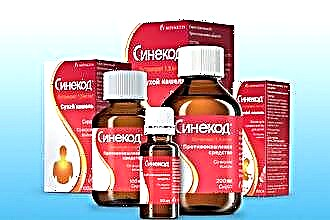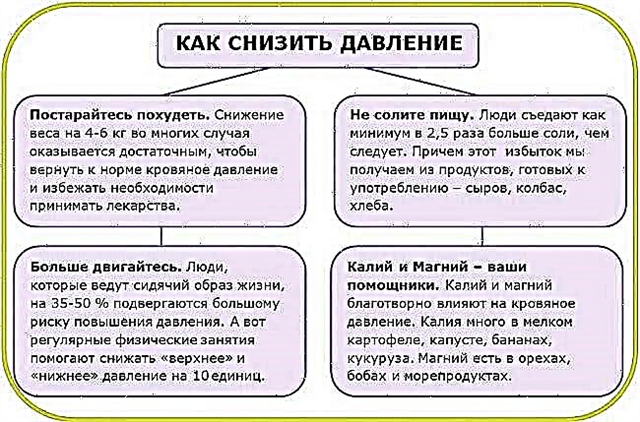 If a child has a hoarse voice, you need to consult an ENT doctor, even if hoarseness is not a manifestation of a serious illness.
If a child has a hoarse voice, you need to consult an ENT doctor, even if hoarseness is not a manifestation of a serious illness.
Consultation with a specialist in the treatment of children is mandatory, because only a doctor can correctly recognize the symptoms and make a diagnosis. Hoarseness in a baby often indicates its infection and the development of laryngitis, which is already unpleasant for parents.
The danger of laryngitis is that when inflammation spreads to the trachea, laryngotracheitis can develop, which increases the risk of laryngospasm and suffocation.
Why are children more prone to laryngospasm than adults? The fact is that the child has some differences:
- the mucous membrane of the larynx is permeated with many blood vessels, which, when inflamed, increase the severity of tissue edema, narrowing the lumen of the larynx and making breathing difficult;
- anatomical features - children have a narrower larynx, which accelerates the development of suffocation during tissue edema;
- looser fiber, which is capable of swelling quickly.
Taken together, the listed signs, together with the toxic effect of infectious microorganisms, lead to the appearance of hoarseness and shortness of breath.
A hoarse voice in a child is not the only sign of laryngitis. It can also be observed:
- dry barking cough;
- shortness of breath, prolonged inhalation;
- dyspnea;
- hyperthermia;
- severe sweating;
- malaise;
- poor appetite.
Sometimes a newborn, after crying violently, may temporarily hoarse, which should not be feared. Calm down the child, and within an hour the sonority of the voice will return.
Why does the voice get hoarse
There are many factors predisposing to the appearance of hoarseness, sometimes it is not even possible to accurately determine its cause. Among the most common reasons, it is worth highlighting:
- infections - ARVI, adenovirus, measles or flu;
- allergies after interacting with allergens (pollen, perfume, hygiene products, detergents, wool);
- severe stress (fear);
- dry air in the nursery, dustiness outside;
- general hypothermia;
- drinking cold drinks and ice cream;
- injury or irritation of the vocal cords by a foreign element;
- overstrain of the ligaments (prolonged crying, screaming, loud singing), due to which the mucous membrane and capillaries are traumatized, and edema develops;
- blow to the neck when falling;
- hormonal changes, when boys' voice breaks down in adolescence and becomes coarser.
Diagnostic techniques
The diagnosis of diseases in children is exclusively carried out by a doctor, especially if it is an infant. First, the pediatrician listens to the complaints of the child or parents, focusing on the features of the onset of symptoms and the period on the eve of the illness.
The doctor then examines the skin for rash, swelling, and bluish discoloration. By probing the lymph nodes, one can suspect the presence of infection and inflammation. On auscultation of the lungs, hard, rapid breathing with occasional dry wheezing is heard.
Laryngoscopy is done to examine the vocal cords. It helps to identify edema and assess the degree of narrowing of the larynx. In addition, it can be assigned:
- blood test;
- bacterial culture of material from the oropharynx (sputum, smear);
- pharyngoscopy.
Treatment activities
 The hoarseness of the voice in a child will quickly pass if drug treatment is carried out, observing the general regimen:
The hoarseness of the voice in a child will quickly pass if drug treatment is carried out, observing the general regimen:
- voice peace. Children are forbidden to speak loudly, only a short whisper is allowed;
- humidifying the air in the room;
- regular airing and wet cleaning;
- bed rest;
- a sufficient volume of fluid to be drunk (calculated by the pediatrician taking into account the age, weight of the child and concomitant pathology). We recommend an alkaline drink (Borjomi), warm milk with honey, butter, tea or compote. This will restore water balance, reduce fever and prevent dehydration;
- it is forbidden to eat cold, hot, spicy and salty foods, carbonated drinks. Vitamin food is required (fresh vegetables, fruits);
- short walks in the fresh air are allowed only after the normalization of the general condition, be sure to dress for the weather.
Medication assistance
If the child has ARVI, to eliminate hoarseness, the doctor may prescribe antiviral drugs. They can be used in several ways:
- inhalation with a nebulizer, even for the smallest children. It is enough to apply the mask to the face and ensure the flow of the medication. Thus, Interferon can be administered;
- orally in the form of drops (Aflubin);
- orally in tablet form (Citovir, Groprinosin, Amiksin);
- oral powder (Otsilokoktsinum).
Confirmed bacterial inflammation requires the appointment of antibacterial drugs:
- penicillins - Amoxiclav in suspension;
- cephalosporins - Zinnat in solution;
- macrolides - Sumamed (suspension).
Separately, it is worth highlighting the Bioparox spray, which has a powerful antibacterial, anti-inflammatory and antifungal effect. The drug is approved from 2.5 years old for irrigation of the pharyngeal mucosa.
The treatment package also includes:
 antihistamines, the action of which is aimed at reducing swelling and irritation of the mucous membrane. Loratadin and Zodak are allowed for children;
antihistamines, the action of which is aimed at reducing swelling and irritation of the mucous membrane. Loratadin and Zodak are allowed for children;- in the presence of a dry, painful cough, it is customary to prescribe antitussives (Herbion plantain and Sinekod);
- mucolytic and expectorant drugs (Lazolvan, Erespal, Ascoril, Fluditek, Bromhexin). They reduce the viscosity of phlegm and facilitate its excretion;
- antipyretics without acetylsalicylic acid (Nurofen, Paracetamol).
Antitussive and expectorant medications are not recommended to be taken at the same time.
Locally, drugs with antiseptic, decongestant, analgesic and anti-inflammatory effects can be prescribed:
- gargling solutions are prescribed starting from the age of 6, because at an earlier age, children are not able to gargle. They may swallow the solution or choke on it. For the procedure, it is allowed to use Miramistin, Chlorhexidine or Givalex;
- solutions in the form of a spray are used to irrigate the throat - Chlorophyllipt, Orasept or Tantum Verde. Spray should be used with caution to avoid laryngospasm;
- lollipops - Lisobakt, Strepsils or Faringosept.
Rinsing should be carried out following these recommendations:
- the procedure begins an hour after eating;
- after rinsing, you should not take liquid, food and go out into the cold for half an hour;
- the solution must be warm;
- to achieve the maximum effect, it is required to alternate solutions throughout the day.
Inhalation
With the advent of the nebulizer, the inhalation procedure has become much easier. The device has many advantages, including:
- accurate dosage of the drug;
- the ability to inhale babies;
- synchronization with breathing is not required;
- control of steam temperature, which prevents burns of the mucous membrane of the upper respiratory tract;
- convenience; the opportunity to purchase a nebulizer in the form of a toy, which will facilitate the procedure, because the child will not be afraid.
However, there are several prohibitions:
- with the help of a nebulizer, oil preparations are not injected. They heavily contaminate the device, and fine crushing of the drug allows the oil particles to penetrate deep enough, which narrows the airway lumen and impairs sputum excretion;
- if the cleaning rules are not followed, the device becomes a source of infection;
- dilution of drugs is carried out only with saline;
- with a fever of more than 38 degrees, inhalation is prohibited;
- It is forbidden to inhale decoctions of herbs through a nebulizer.
When a hoarse voice in a child is combined with a cough, inhalations can be carried out with the following drugs:
- herbal and homeopathic remedies, such as Sinupret. The medicine reduces tissue swelling and increases local immune defenses. Used for children over 2 years old, requiring dilution with saline solution 1: 3. After six years, the dilution decreases - 1: 2;
- non-carbonated alkaline water - moisturizes the mucous membrane and reduces irritation;
- in case of difficult sputum discharge, inhalations with Lazolvan or Ambrobene are prescribed;
- at the risk of laryngospasm and a severe course of the disease, a hormonal drug is added - Pulmicort. All parents with small children should have it in their first aid kit. The medicine quickly removes tissue swelling, making breathing easier. It also has a powerful anti-inflammatory effect.
Comprehensive treatment allows you to act on all links of pathology, providing:
- fight against viruses and bacteria;
- reduction of painful sensations and tissue swelling;
- relief of cough and reduction of sputum viscosity;
- moisturizing the mucous membrane of the oropharynx;
- fast tissue regeneration;
- prevention of laryngospasm.
 Help with an allergic course of the disease consists in eliminating the allergen and prescribing the following drugs:
Help with an allergic course of the disease consists in eliminating the allergen and prescribing the following drugs:
- antihistamines, which reduce the severity of an allergic reaction and tissue swelling - Suprastin, Claritin or Zodak;
- sorbents - Atoxil, which allows you to stop the absorption of food products that have caused allergies, and to accelerate the elimination of allergens;
- drinking plenty of fluids; in severe cases, hormonal agents are prescribed - Dexamethasone, which block the development of an allergic reaction.
Folk recipes
In addition to the main treatment, folk remedies can be used:
- during the period of a cold, you can give your child a rosehip-based medicine. For cooking, you need to pour 10 crushed rose hips with 450 ml of boiling water, add a currant leaf and leave to steam for three hours. Then, after cooling the medicine, you can take the child 100 ml every two hours;
- 2 g of soda can be dissolved in warm milk, then give to drink in small sips;
- you can rinse the oropharynx with decoctions of herbs. For cooking, you need calendula, chamomile, oak bark or eucalyptus. 10 g of the ingredient must be brewed in 230 ml boiling water, filtered and used for rinsing three times a day;
- soda-salt solution is prepared by dissolving 5 g of components in warm water (220 ml). You can also add a drop of iodine and start rinsing;
- milk or tea with honey;
- a piece of honey can be simply sucked in the mouth. Honey will envelop the mucous membrane and soften it;
- honey can be used to rinse the oropharynx. To prepare the medicine, it is enough to pour 5 g of honey with 170 ml boiling water, then boil for several minutes over low heat. After slightly cooling the broth, you can use it for rinsing;
- to 240 ml of hot milk, add 10 g of sage leaves and leave for 5-10 minutes for brewing and cooling. After filtering the broth, you can take it before bedtime.

Prophylaxis
In order to prevent the voice from becoming hoarse again, you need to engage in prevention:
- avoid contact with the allergen;
- hardening;
- eat properly;
- drink enough fluids;
- regularly ventilate the room and carry out wet cleaning;
- humidify the air in the nursery;
- dress for the weather before walking;
- take vitamins;
- exercise;
- walk regularly in the fresh air;
- drive to the sea or to the forest.
The listed recommendations relate not only to the prevention of hoarseness, but in general to strengthen the child's immunity.
Young mothers should understand that breastfeeding is an essential component of strong immunity. Don't forget this!

 antihistamines, the action of which is aimed at reducing swelling and irritation of the mucous membrane. Loratadin and Zodak are allowed for children;
antihistamines, the action of which is aimed at reducing swelling and irritation of the mucous membrane. Loratadin and Zodak are allowed for children;

